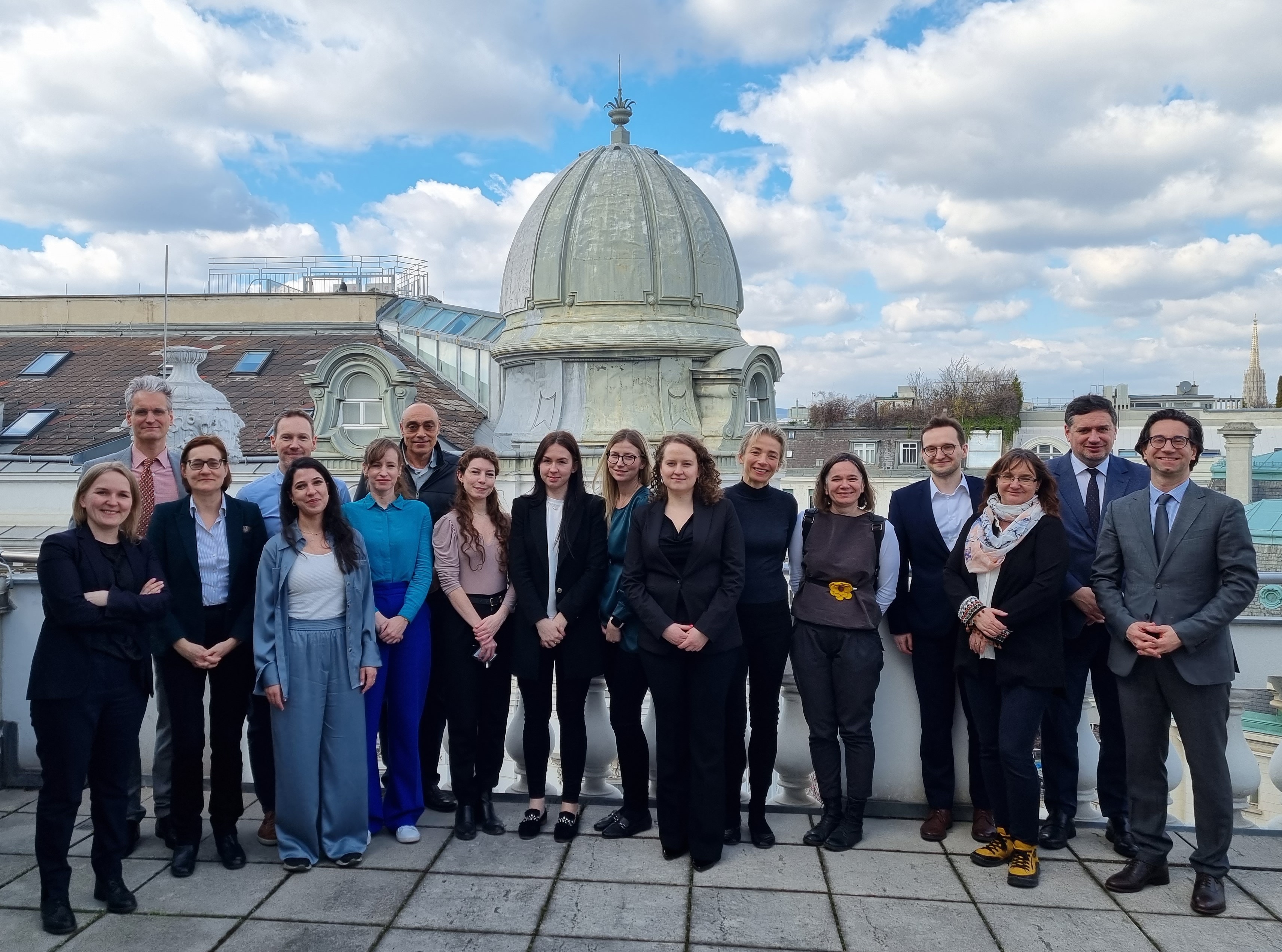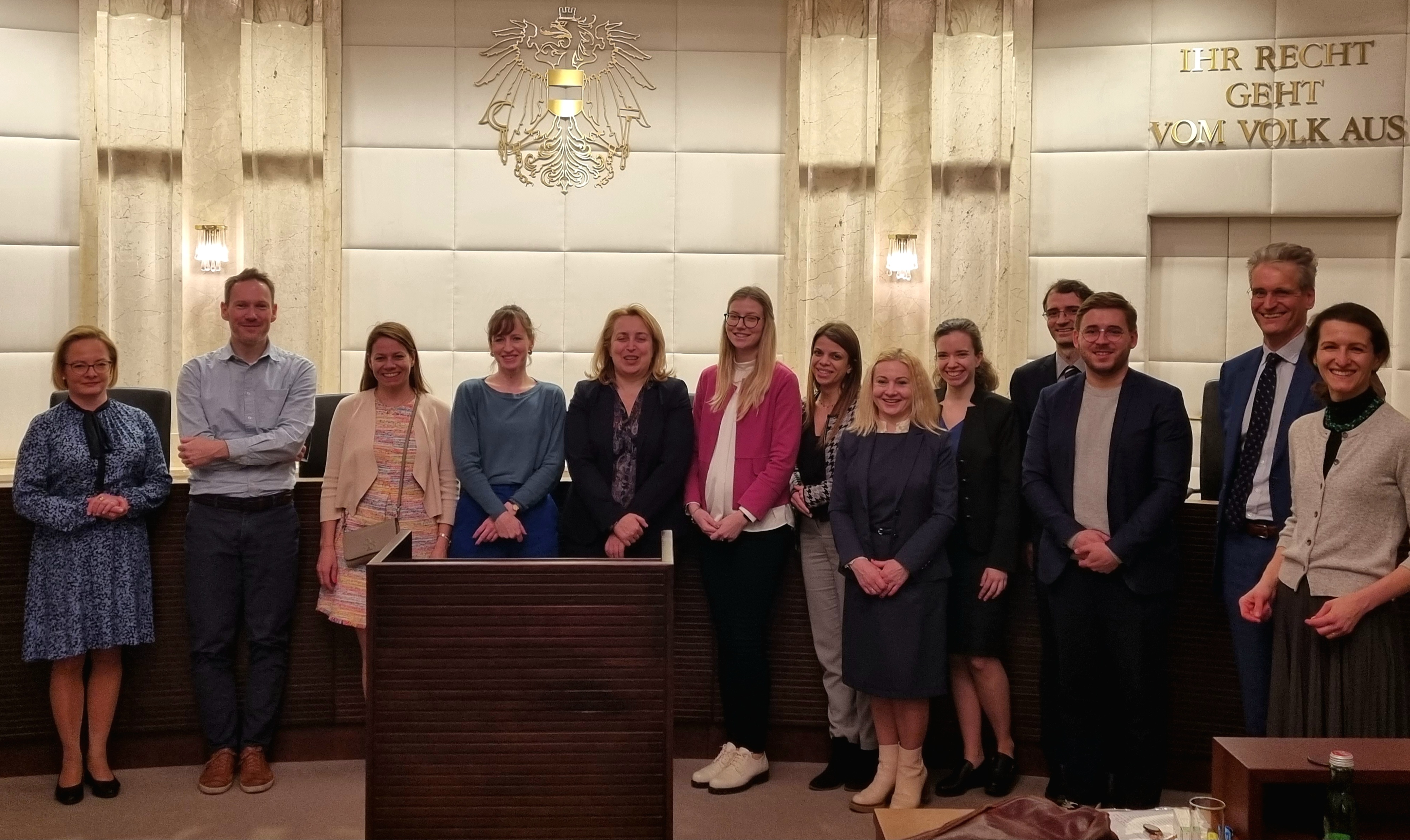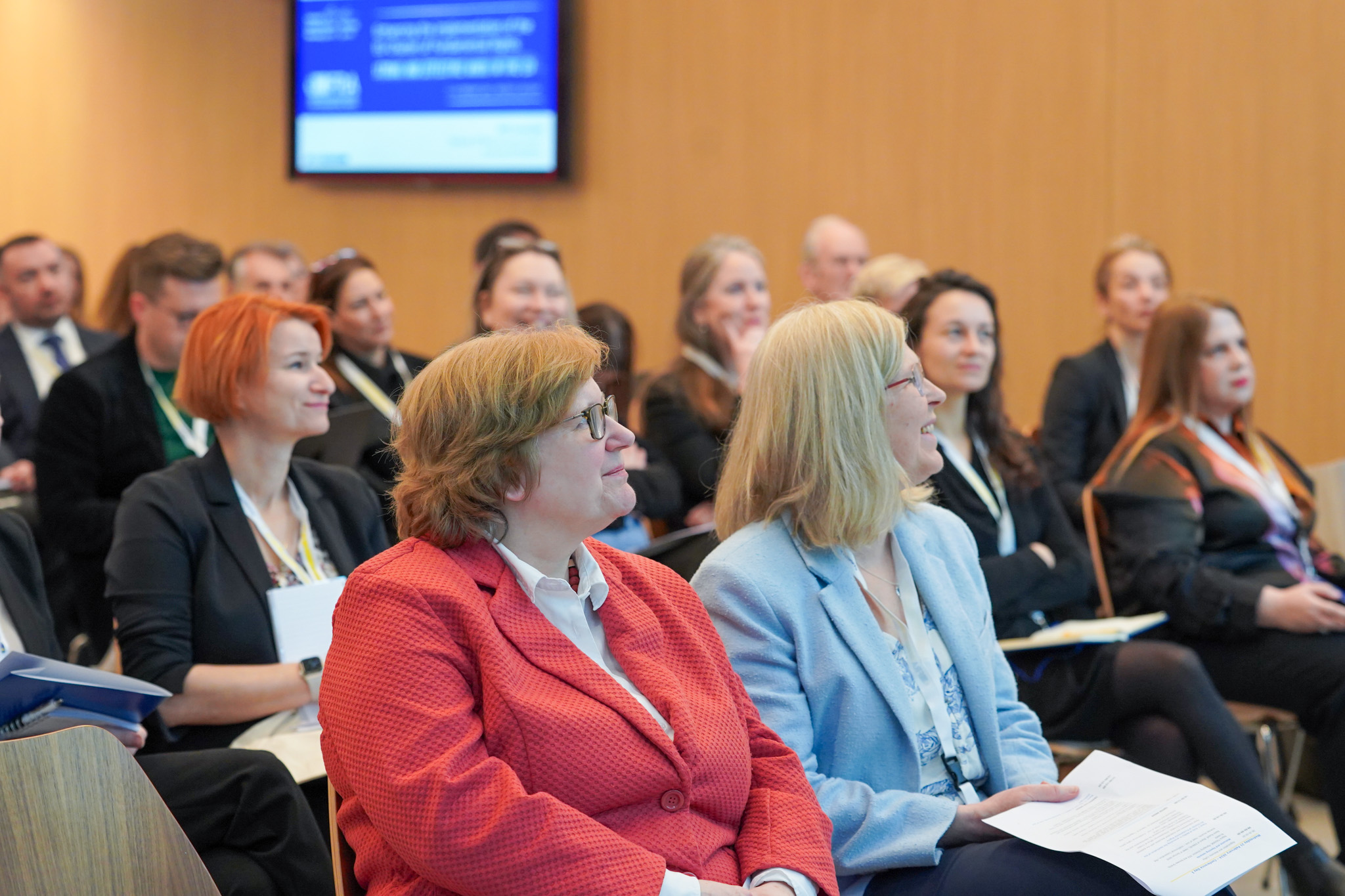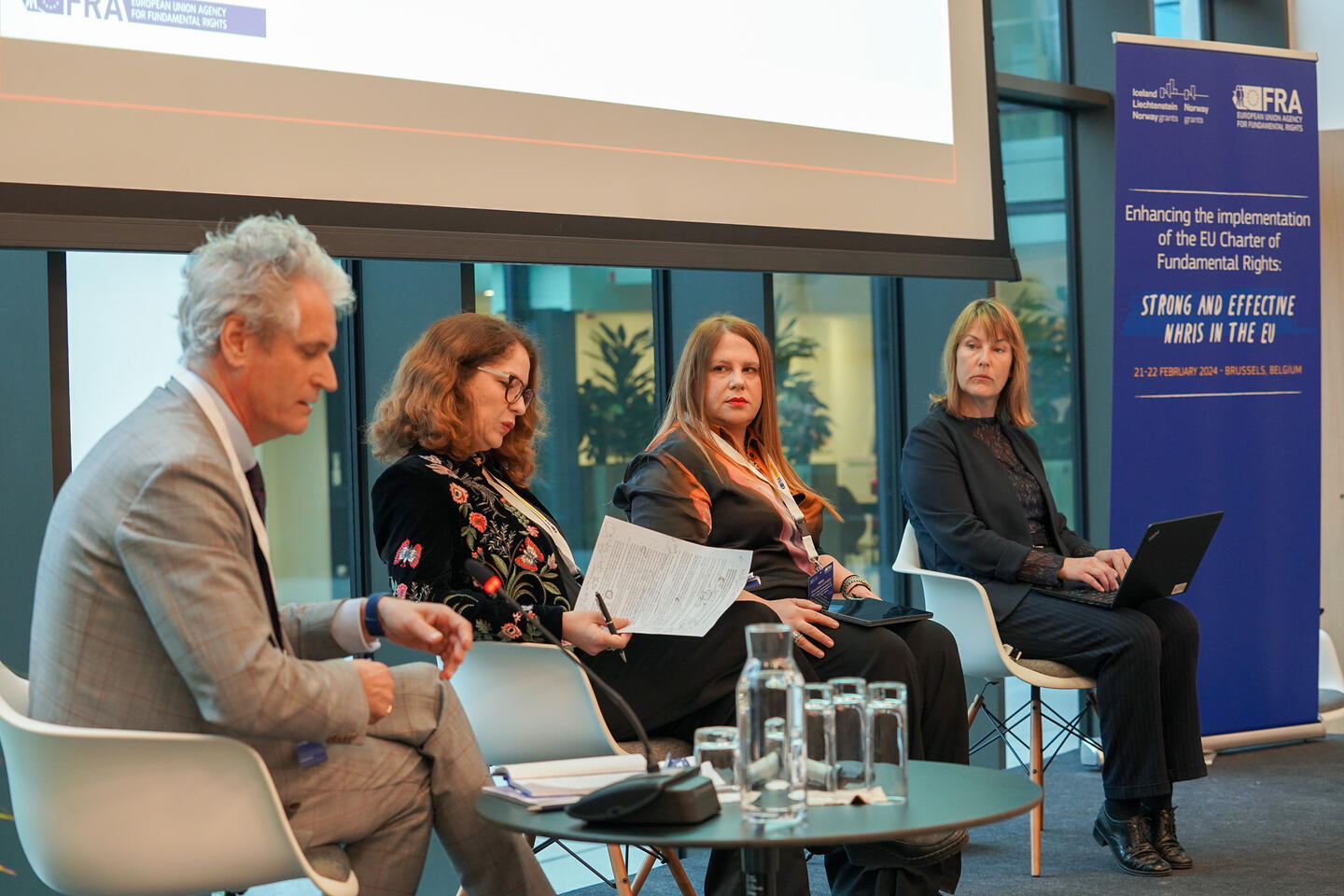The project ‘Supporting National Human Rights Institutions in monitoring fundamental rights and the fundamental rights aspects of the rule of law’, supported by the EEA and Norway Grants fund for Regional Cooperation, is driven by a consortium of dedicated partners, including the EU Fundamental Rights Agency (FRA), as well as National Human Rights Institutions from Poland, Croatia, Slovakia, Slovenia, Cyprus, Latvia and Bulgaria, and the European Network of NHRIs (ENNHRI).
“Challenges to the rule of law require an even closer exchange of information and best practices beyond borders. Regional cooperation can empower NHRIs to play out their role more effectively, by pooling their resources, expertise and influence,” says Ragna Fidjestøl, Managing Director of the EEA and Norway Grants.
The project has been instrumental in promoting and protecting fundamental rights and the rule of law, thus responding to FRA’s call for a more robust integration of NHRIs within the EU framework and increasing the implementation of the EU Charter of Fundamental Rights.
Enhancing implementation of the EU Charter of Fundamental Rights
“At the heart of this initiative is a simple, yet profound objective: to enhance the capacity of NHRIs to engage with EU mechanisms effectively and to increase the implementation of the EU’s Charter of Fundamental Rights within the realm of NHRIs’ mandates," highlights Eva-Esther Sobotka, the Project Manager at the Fundamental Rights Agency.
Drawing its initial inspiration from FRA’s 2020 report Strong and effective national human rights institutions , the project began to take shape.
"The report shed light on the pressing challenges that NHRIs face with regard to the implementation of EU law, particularly the EU Charter of Fundamental Rights in their national setting. With this project we therefore embarked on a journey with our partners to strengthen peer-to-peer learning and networking amongst institutions, mandated to protect and promote fundamental rights,” adds Sobotka.
The power of collaboration
The EU Fundamental Rights Agency, the National Human Rights Institutions from Poland, Croatia, Slovakia, Slovenia, Cyprus, Latvia and Bulgaria, and the European Network of NHRIs (ENNHRI) brought unique strengths to the table, converging on shared objectives while navigating their way through different national human rights landscapes.
“The project wasn’t just about immediate objectives and outputs. It was also about building relationships and dialogue that can lead to long-lasting change,” says Katrien Meuwissen from the European Network of National Human Rights Institutions (ENNHRI), highlighting the project’s far-reaching impact. Katrien Meuwissen from the European Network of National Human Rights Institutions (ENNHRI)

For instance, in Croatia, the roundtable discussions sparked by the project led to substantial policy revisions, strengthening support for a strong and vibrant civil society.
“In Croatia, the project has contributed to strengthening policymakers and the ongoing mainstreaming of fundamental rights in policy-making. Additionally, our discussions and collaborations have reinforced our commitment to safeguarding civil society. This initiative highlighted the power of collective effort and emphasised the importance of maintaining an active dialogue on human rights within our national framework,” says Tena Šimonović Einwalter, Ombudswoman of the Republic of Croatia.
The Polish NHRI devised a comprehensive fundamental rights checklist, a tool that now stands as a testament to the project's success.
Thanks to this project, we have been empowered to create instruments that may now serve as blueprints for effective human rights advocacy within the EU. Cezary Węgliński, Counsel Constitutional, International and European Law Department and Marta Sznajder, Counsel in the Office of the Commissioner for Human Rights
The Slovak NHRI's contribution is equally significant, with the development of a public tool that outlines the intricate relationship between national proceedings and international human rights instruments.

Legacy and next steps of a transformative project
As the project draws to a close, the achievements are manifold, ranging from increased monitoring of the EU Charter when implementing EU funds, to monitoring of the rule of law. But beyond the tangible outcomes lies a deeper, more resonant progress – the establishment of a practice, which can serve as inspiration for others. This is reflected in one of the outcomes of the project: the Conclusions on the Role of National Human Rights Institutions in enhancing the implementation of the EU Charter of Fundamental Rights. The Conclusions capture the key findings and experiences of this intensive peer-to-peer transnational collaboration, supported by Iceland, Liechtenstein and Norway through the EEA and Norway Grants. They encapsulate the legacy of the project, encouraging Member States and the European Commission to sustain and extend the project’s outcomes.
The final conference, held in Brussels this week, marks the official closing of the project, but the perseverance in promoting and protecting fundamental rights, while strengthening human rights structures, is far from over. The conference is not only symbol of the project’s culmination, but also a forum to reflect on the progress made and to discuss the path forward.

Looking ahead, the project’s partners are determined to continue their critical work.
“This is not the end but a new beginning,” says Andreas Accardo, Head of Institutional Cooperation at FRA. "Strong and independent NHRIs are essential for the protection of everyone’s rights in the EU, and it's imperative that identified ways how NHRIs can contribute to promoting awareness of the EU’s common values of fundamental rights and the rule of law amongst citizens, legal professionals, politicians and the media are sustained and further supported,” he adds.
-----------------------------------------------------------------------------------------------------------------------------------------
The project ‘Supporting National Human Rights Institutions in monitoring fundamental rights and the fundamental rights aspects of the rule of law’ is funded under the Fund for Regional Cooperation, which fosters cross-border and transnational collaborations in Europe. This Fund plays a crucial role in addressing regional challenges and enhancing economic and social cooperation at a broader European level.
